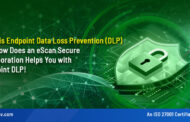 Facebook, Twitter, Google+, YouTube, Pinterest, LinkedIn and other social networks have increased at astonishing levels and they have become a vital part for our online lives. There are many advantages of these sites which include connecting with friends and family, searching jobs, increasing sales revenue, informing people about a brand or idea and much more. However, along with so many benefits there are also information security and privacy concerns associated with it. The amount and accessibility of personal data offered on these sites have attracted cybercriminals who seek to exploit this information.
Facebook, Twitter, Google+, YouTube, Pinterest, LinkedIn and other social networks have increased at astonishing levels and they have become a vital part for our online lives. There are many advantages of these sites which include connecting with friends and family, searching jobs, increasing sales revenue, informing people about a brand or idea and much more. However, along with so many benefits there are also information security and privacy concerns associated with it. The amount and accessibility of personal data offered on these sites have attracted cybercriminals who seek to exploit this information.
The more information a user posts, the more information becomes available for others online including cybercriminals. They can easily use this information for hosting spear phishing attacks, spoofing, and web application attacks with an aim to steal a person’s identity. In this case a user may unknowingly be providing an easy channel for identity theft. Hence, a user should be wary about how much personal information he/she post online on these social networking sites.
Security issues associated with social networking sites are basically behavioral issues and not really technical ones. Users, who post a lot of private or sensitive information about themselves, are at a higher risk of getting themselves attacked by cybercriminals. Moreover, information such as phone number, financial details, or sensitive business data should not be published online. Additionally, posting photos or videos could also lead to data breach.
However, often due to technical issues such as hacking of a site also results in leakage of usernames and passwords of account holders, which ultimately leads to data loss and identity theft. Additionally, Spyware, Keylogger, Password cracker and Kazy Trojan via Adware infects the computer through social media sites. Users unknowingly click on malicious advertisements and invite malware on their devices. Hence, users must be extra cautious before clicking on any link or advertisements on social media sites.
Overall, social media causes serious security and privacy concerns that must be taken care of so that users are protected against various cyber security threats.
eScan recommends below tips for a safe and enjoyable social networking experience:
- Get reliable security software: Update your system with the latest antivirus software such as eScan that provides enhanced protection against online threats.
- Have a strong online password: Combine capital and lowercase letters with numbers and symbols to create a strong password.
- Have different passwords for different accounts: Different passwords helps keep you safe from cybercriminals.
- Avoid clicking on any pop-up: Especially pop-ups which get displayed on unknown websites.
- Think before you post: What you post online stays online. Think twice before posting anything online. Recent research stated that 70% of job recruiters rejected candidates based on information they found online.
- Keep personal data personal: Be careful about the personal data you provide on social networking sites. Too much personal data online can be harmful.
Use eScan Total Security Suite with Cloud Security for Home and Small Office Edition that provides safe computing environment to your family when using the internet, making transactions, shopping online, or even social networking.
Get the free trial of eScan Total Security Suite with Cloud Security from here: https://www.escanav.com/english/content/products/downloadlink/downloadproduct.asp?pcode=ES-TOTAL-SEC
Also to ensure secure social networking experience on your smartphone, use the free trial of eScan Mobile Security for Android. Click here https://play.google.com/store/apps/details?id=com.eScan.main




